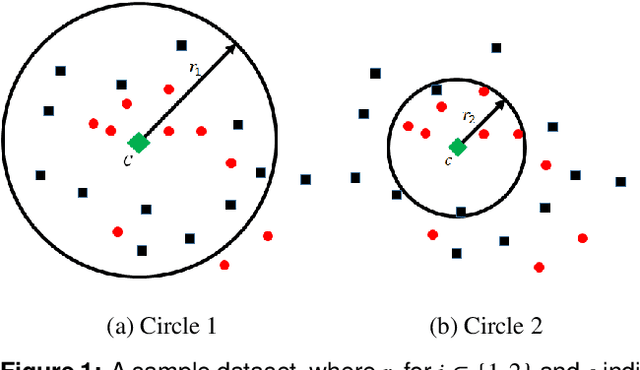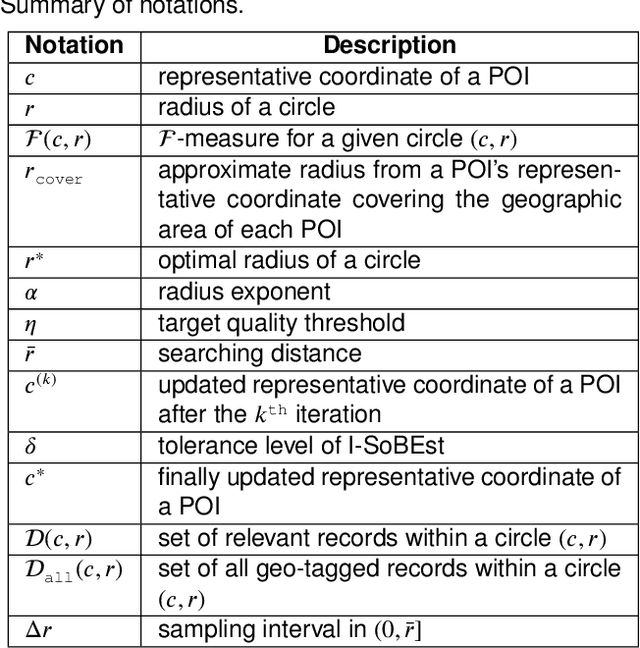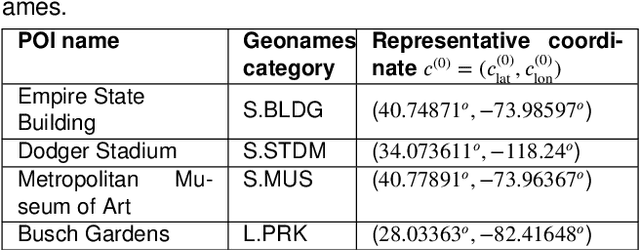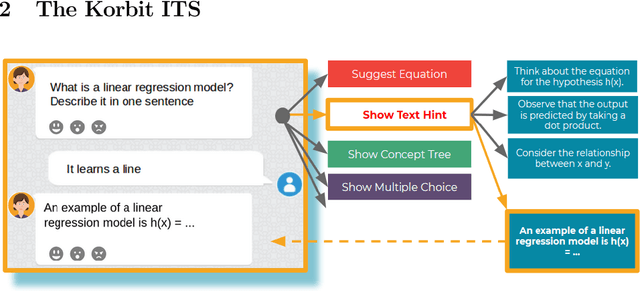Dung D. Vu
An Improved Approach for Estimating Social POI Boundaries With Textual Attributes on Social Media
Dec 18, 2020



Abstract:It has been insufficiently explored how to perform density-based clustering by exploiting textual attributes on social media. In this paper, we aim at discovering a social point-of-interest (POI) boundary, formed as a convex polygon. More specifically, we present a new approach and algorithm, built upon our earlier work on social POI boundary estimation (SoBEst). This SoBEst approach takes into account both relevant and irrelevant records within a geographic area, where relevant records contain a POI name or its variations in their text field. Our study is motivated by the following empirical observation: a fixed representative coordinate of each POI that SoBEst basically assumes may be far away from the centroid of the estimated social POI boundary for certain POIs. Thus, using SoBEst in such cases may possibly result in unsatisfactory performance on the boundary estimation quality (BEQ), which is expressed as a function of the $F$-measure. To solve this problem, we formulate a joint optimization problem of simultaneously finding the radius of a circle and the POI's representative coordinate $c$ by allowing to update $c$. Subsequently, we design an iterative SoBEst (I-SoBEst) algorithm, which enables us to achieve a higher degree of BEQ for some POIs. The computational complexity of the proposed I-SoBEst algorithm is shown to scale linearly with the number of records. We demonstrate the superiority of our algorithm over competing clustering methods including the original SoBEst.
A Large-Scale, Open-Domain, Mixed-Interface Dialogue-Based ITS for STEM
May 06, 2020
Abstract:We present Korbit, a large-scale, open-domain, mixed-interface, dialogue-based intelligent tutoring system (ITS). Korbit uses machine learning, natural language processing and reinforcement learning to provide interactive, personalized learning online. Korbit has been designed to easily scale to thousands of subjects, by automating, standardizing and simplifying the content creation process. Unlike other ITS, a teacher can develop new learning modules for Korbit in a matter of hours. To facilitate learning across a widerange of STEM subjects, Korbit uses a mixed-interface, which includes videos, interactive dialogue-based exercises, question-answering, conceptual diagrams, mathematical exercises and gamification elements. Korbit has been built to scale to millions of students, by utilizing a state-of-the-art cloud-based micro-service architecture. Korbit launched its first course in 2019 on machine learning, and since then over 7,000 students have enrolled. Although Korbit was designed to be open-domain and highly scalable, A/B testing experiments with real-world students demonstrate that both student learning outcomes and student motivation are substantially improved compared to typical online courses.
 Add to Chrome
Add to Chrome Add to Firefox
Add to Firefox Add to Edge
Add to Edge